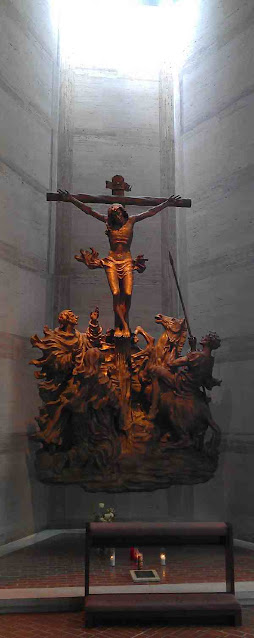That Easter Sunday evening at Westminster Abbey...

"The Crucifixion," by Enrico Manfrini, Cathedral of Saint Mary of the Assumption , San Francisco, Calif. That Easter Sunday evening at Westminster Abbey, Sister Judith CSC, then eighty-nine, conducted; sunlight streamed down through windows high above. “It's a big space to fill,” she said, her stoop barely allowing her to see over the podium, “so have a good yell.” The hymn began, “Jesus Christ is risen to-day, Alleluia!...” In the gospel reading from Luke 24, Jesus' disciples seemed not to expect a crucifixion: “...But we had hoped that he was the one to redeem Israel....'” They also seem not to expect a resurrection: “'...Moreover, some women of our group astounded us.... they came back and told us that they had indeed seen a vision of angels who said that he was alive....'” Later in the gospel reading: “...When he was at the table with them, he took bread, blessed and broke it, and ga...







